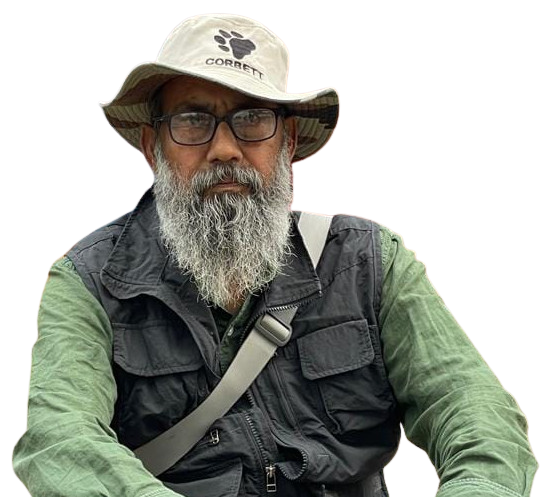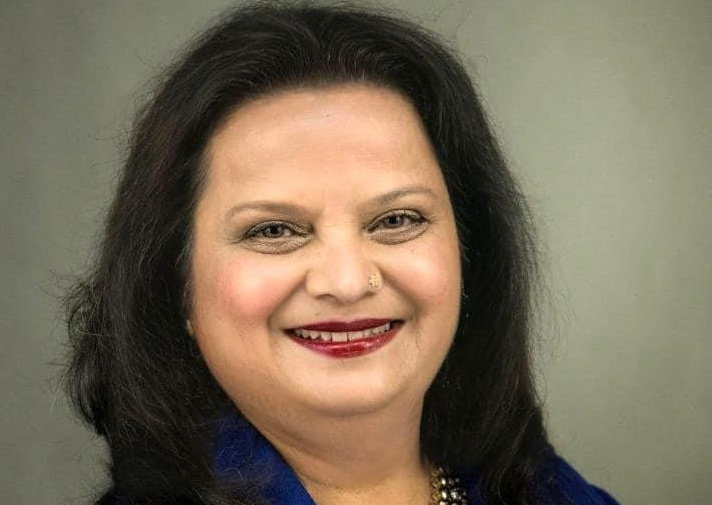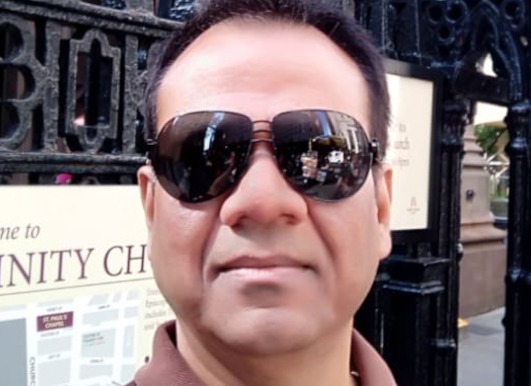
Greenananda (Suresh Nautiyal)
Greenananda, officially known as Suresh Nautiyal, is an extraordinary figure in India known for his multifaceted career as a journalist and editor, rights defender, environmental activist, poet, playwright, director, scriptwriter, truth-seeker, minimalist, humanist, meliorist, atheist, and political leader.
He is best recognised as a pioneer of Green Politics in India, having founded the India Greens Party (iGP) in 2018, a pan-India political party dedicated to ecological sustainability, social justice, equity, and participatory democracy.
Greenananda’s life and work embody a deep commitment to activism, creativity, and the pursuit of a better world. A perpetual struggler in search of peace, perfection, and participatory democracy, he describes himself as a believer in creativity and sensitivity. His encounters with creativity often arise within his own mind, though he acknowledges that his ideas are inspired by both the outer and inner worlds.
Early Life and Education
Greenananda was born on April 29, 1956, in Unchir, near Pauri in Uttarakhand, a region known for its natural beauty and ecological significance. He is the sixth of seven children of Anandidevi and Chaitram with siblings named Satya (late), Lakshmi, Shambhu Prasad (late), Sulochana, Jagdish Prasad, and Bhagirathi aka Manju.
His early years were marked by immense struggles, including poverty and a lack of basic necessities like warm clothes and proper shoes during harsh winters. In seventies and eighties, he faced malnutrition and homelessness as well in Delhi.
Despite these challenges, Greenananda displayed an insatiable thirst for knowledge. He attended primary school only at the age of seven because the path to the nearest school passed through dense forests, making it inaccessible for young children. His academic journey began with modest beginnings but soon revealed his brilliance. By the third grade, he was teaching the Devanagari script to village women, showcasing his intellectual curiosity and leadership qualities from a young age.
Greenananda pursued higher education with determination, earning a Bachelor of Arts (Honours) in English Literature from Dyal Singh College, University of Delhi, in 1979. Although he initially enrolled in MA in English, he left the programme midway, believing that formal education alone would not lead him to his goals.
Later, he completed a Master’s degree in Human Rights from Pondicherry University and another in Media & Communications from GJ University, Hissar, Haryana.
He earned a Post-Graduate Diploma in Journalism from the Sardar Patel College of Communication & Management, Bharatiya Vidya Bhavan, New Delhi, and a Parliamentary Fellowship certificate from the Institute of Constitutional & Parliamentary Studies, New Delhi, after he discontinued to pursue MA in English Literature.
Career in Journalism
Greenananda’s career as a journalist spanned several decades, during which he established himself as a senior journalist and editor. He began his career in 1984 as a sub-editor and reporter for Pratipaksha, a Hindi weekly edited by the eminent Socialist leader George Fernandes. In 1985, he joined Univarta, the Hindi wire service of the United News of India (UNI), where he worked until 1993. He later served as Special Correspondent for The Observer of Business & Politics before leaving journalism temporarily to focus on activism and other pursuits.
In 2002, he launched Uttarakhand Prabhat, a Hindi periodic newspaper that ran successfully for over a decade. During this time, he also worked with organisations such as the Centre for the Study of Developing Societies (CSDS) and the Helsinki Process on Democratisation, where he coordinated programmes related to ecological democracy.
Greenananda returned to journalism in 2016, joining the United News of India (UNI) as Editorial Consultant at its New Delhi headquarters. He was later promoted to the position of Consulting Editor but left it in 2019 to dedicate his time fully to the India Greens Party and Green Politics.
Throughout his journalistic career, Greenananda focused on raising awareness about citizens’ participation, environmental concerns, and human rights. Beyond traditional journalism, he explored poetry, drama, scriptwriting, and documentary filmmaking, showcasing his versatility as a communicator.
Political Activism and the Uttarakhand Movement
Greenananda emerged as a key leader in the Uttarakhand Movement, advocating for statehood for the mountainous region of Uttar Pradesh. As the Spokesperson for the Uttarakhand Jan Sangharsh Vahini (UJSV) and Uttarakhand Andolan Sanchalan Samiti (UASS), he played a pivotal role in mobilising local populations and highlighting the economic, social, and cultural disparities faced by the region.
In 1996, Greenananda joined the Uttarakhand Kranti Dal (UKD), a regional political party instrumental in the statehood movement. However, ideological differences led him to leave the party in 2007 when it decided to support the BJP-led government in Uttarakhand. Disappointed but undeterred, he co-founded the Uttarakhand Parivartan Party (UKPP) in 2009, a regional Green party aimed at promoting sustainable development and ecological conservation.
Transition to Green Politics
Greenananda’s journey into Green Politics began in 2002 when he connected with the Green activists of Finland. Inspired by their ideologies, he envisioned a national Green movement in India. In 2004, he visited Finland, where he interacted with prominent Green leaders like Anastasia Laitila, Risto Isomaki, Ville Veikko, and Marko Ulvila. This experience solidified his belief in the principles of ecological wisdom, non-violence, sustainability, and participatory democracy.
In 2005, he attended a conference organised by the Asia Pacific Greens Network (now the Asia Pacific Greens Federation, APGF) in Kyoto, Japan, further strengthening his resolve to promote Green Politics. After years of deliberation and groundwork, he formally established the India Greens Party (iGP) on November 18, 2018, in New Delhi. The iGP became a full member of the Global Greens and the APGF in 2019, marking its integration into the international Green movement.
Philosophy and Advocacy
A perpetual struggler in search of peace, perfection, and participatory democracy, Greenananda advocates for sustainable practices and ecological conservation. His activism focuses on addressing climate change, water scarcity, deforestation, and pollution—issues he argues are often side-lined by mainstream political parties due to corporate influence and short-term gains.
Greenananda emphasises the need for a paradigm shift in Indian politics, criticising the lack of environmental focus in mainstream party manifestos. He encourages legislative reforms to promote ecological awareness and advocates for inclusivity, ensuring representation of marginalised communities, women, and youth in the iGP’s leadership.
Despite limited resources, Greenananda remains optimistic about the iGP’s future. He envisions a “politically and ecologically green” India, prioritising the well-being of present and future generations. The iGP avoids polluting rallies, relying instead on door-to-door campaigning and social media to spread its message.
International Engagement
Greenananda’s influence extends globally through his active participation in organisations like the Global Greens, Asia Pacific Greens Federation, and Democracy International. He has been a founding Board Member of Democracy International, a Germany-based organisation advocating for direct and participatory democracy. His international roles reflect his commitment to shaping green policies on a global-scale while grounding them in India’s unique ecological and political contexts.
Creative Contributions
Beyond his political and activist endeavours, Greenananda is a prolific poet, playwright, and filmmaker. He has written over a thousand poems in English, Hindi, and Garhwali, many of which have been published in prestigious journals and anthologies. His creative works also include scripts for documentaries and feature films, as well as editorial contributions to over 80 books and publications.
Personal Life and Legacy
Based in New Delhi and Uttarakhand, Greenananda leads a life dedicated to activism and environmental advocacy. While the iGP remains a minor player in India’s political landscape, his legacy lies in planting the seeds for a green political consciousness in a nation grappling with severe environmental challenges.
Greenananda’s life-journey continues with numerous dream projects on several fronts—including poetry, plays, politics, human rights, social work, cultural promotion, personal duties, journalism, internationalism, and participatory democracy—yet to be realised. His Green friends like Michael Rabley from the UK and Chris Alders from Canada aptly summarise his contribution: “We celebrate Greenananda because he has arrived in the world to make it a better, a happier place for us.”
Whether his efforts will flourish into a robust movement or remain a marginal experiment depends on how India navigates its ecological and democratic future. For now, he continues to march forward with his co-travellers, friends, and colleagues, driven by the belief that all his dreams will come true one day.










